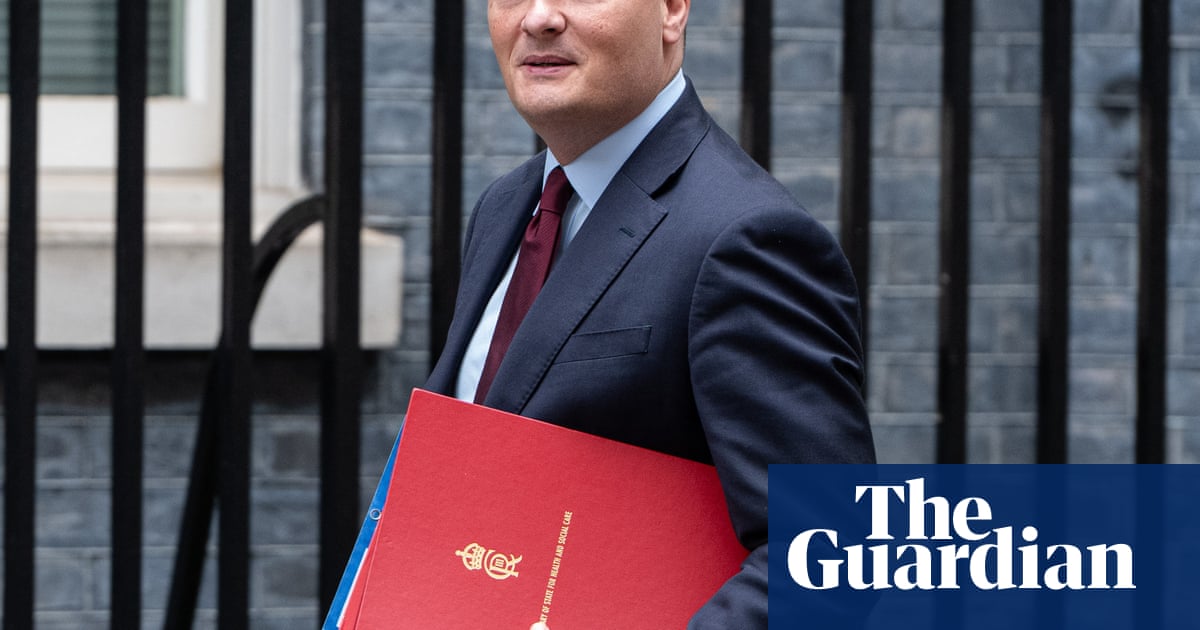Wes Streeting has voiced doubts over whether the NHS can afford to establish an assisted dying service, after MPspassed a bill to legalise the procedure last week.
The health secretary was previously a supporter of assisted dying but switched sides last year, expressing concerns about the ethics of offering such a service before significant improvements could be made to theNHS.
“The truth is that creating those conditions will take time and money,” he wrote in a message to constituents.
“Even with the savings that might come from assisted dying if people take up the service – and it feels uncomfortable talking about savings in this context, to be honest – setting up this service will also take time and money that is in short supply. There isn’t a budget for this. Politics is about prioritising. It is a daily series of choices and trade-offs. I fear we’ve made the wrong one.”
The bill will now head to the House of Lords, where there are expected to be continued battles over its progress, with campaigners urging peers to use “dark arts” to impede it. MPs who backed the legislation have said it would be anti-democratic for peers to block the private member’s bill passed by the elected house.
Writing on Facebook, the health secretary said he wanted to speak directly to his Ilford North constituents on the issue. “There is no doubt that this is a major and profound social change for our NHS and our country. I can understand why many people who are facing terminal illness, or fear terminal illness, are seeking the right to die at a time and manner of their choosing and I have enormous respect for their position,” he wrote.
“I also have the utmost respect for Kim Leadbeater and my other friends and colleagues in parliament who have supported this bill. I’ve seen first-hand how hard Kim has worked to listen to everyone’s views and take onboard amendments to her bill with integrity.”
But Streeting said he was disturbed by the concerns about the bill that have been voiced by the Royal College of Psychiatrists, the Royal College of Physicians, the Association for Palliative Medicine and disability campaigners.
Streeting said the department would work closely on the technical aspects of the bill, even though the government was neutral, and that Stephen Kinnock, the care minister, would work on the bill should the Lords pass it, in order to make sure “we do a good job with it for the country”.
The impact assessment produced by the government on the bill suggested that panels set up to approve procedures would cost about £2,000 a day, adding up to between £900,000 and £3.6m over a 10-year period. The total cost of running the panels – and employing a dedicated commissioner – would be between £10.9m and £13.6m a year.
Sign up toFirst Edition
Our morning email breaks down the key stories of the day, telling you what’s happening and why it matters
after newsletter promotion
However, the assessment estimated that the bill would ultimately cut end-of-life care costs by millions, with a central estimate that 2,183 people would use the service by its 10th year.
The bill, which passed with a majority of 23 on Friday, would allow terminally ill adults inEnglandand Wales who have less than six months to live to apply for an assisted death. This would be subject to approval by two doctors and a panel including a social worker, senior legal figure and psychiatrist.
TheLabourpeer Charlie Falconer, who is expected to take the lead on the legislation in the House of Lords, said despite the depth of feeling on the issue, peers should not use procedural devices to block it.
“The overwhelming instinct in the Lords will be not to block or delay but to see whether there can be any improvements which do not interfere with the bill’s principles,” he wrote in the Sunday Times.
“The last time there were votes of real substance on this issue was on a bill I introduced in 2014 for which the votes in the Lords were in favour. There have been many new peers introduced into the house since then, and many departures. Where the house’s views are now is difficult to judge but they will work towards a bill that gives effect to the Commons’ view.”
